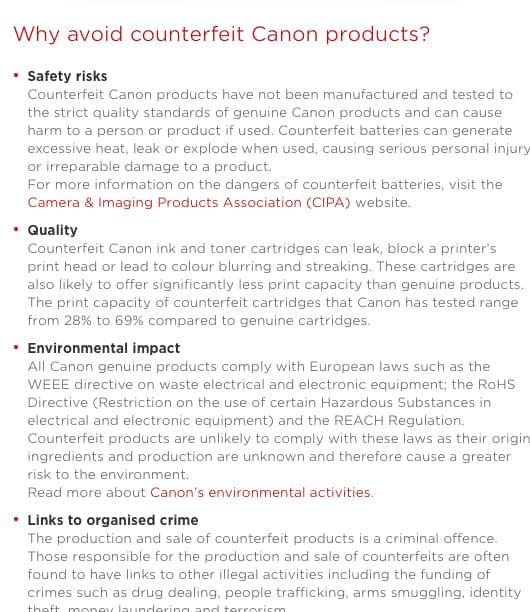Today, Amateur Photographer (AP), in collaboration with BBC One consumer rights show Fake Britain, launches a survey to garner the public’s experiences of buying fake camera gear.
Did you discover that the on-screen serial number on your camera failed to match the number of the camera body?
Or maybe the camera’s body panel showed the model name/number of a higher-end model?
Did the product have a fake serial number sticker, concealing its origin?
It’s not all about counterfeit cameras, though. You may have acquired one of the following products that was not what it purported to be: an SD card; lens; tripod; battery; flash unit; filter; or camera bag.
Did you unwittingly buy the item as a cheaper, grey-market import, which means you may not have recourse if the camera develops a fault?
Or perhaps the fake equipment came through an official supplier?
AP and Fake Britain urge photographers to share their experiences of fake photography products by completing this brief SURVEY.
AP has reported on fake camera gear several times in recent years.
Last year, for example, Nikon Europe warned that fake and fraudulently modified Nikon DSLRs were surfacing at its service centres.
Nikon blamed ‘internet auctions and the like’ for the circulation of ‘fraudulently modified and imitation products’, which it refused to inspect or repair.
Nikon also warned that its warranty did not apply to such products, for which Nikon accepted no responsibility.
The outer covers of D800 cameras were fraudulently replaced with ones from the D800E; the nameplates of D7100 DSLRs were swapped for ones from the D610; and D4 models were fraudulently modified to resemble D4S cameras.
In 2010, a man was arrested after 20,000 fake camera cases worth £1/2m were seized in a sting operation orchestrated by Canon and Trading Standards in Greater Manchester.
The cases were branded as Canon, Sony, Panasonic, Nikon, Pentax and Kodak.
In 2014, Fake Britain highlighted the dangers of fake camera batteries and showed a raid on a property containing thousands of suspected counterfeits.
The programme pointed out that the counterfeit batteries are ‘far more likely to short-circuit’ than a genuine battery, due to poor quality control and lack of built-in safety features.
TO TAKE PART IN THE SURVEY PLEASE CLICK HERE

Canon’s website (above) warns customers of the dangers of using counterfeit products







